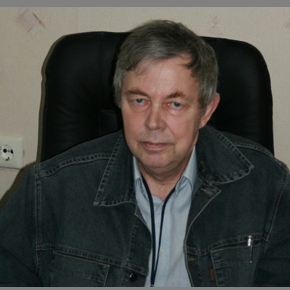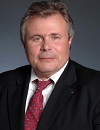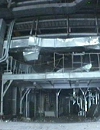Russian President Dmitry Medvedev and his U.S. counterpart Barack Obama agreed to continue joint work on a European missile shield, boost anti-terrorism efforts, promote nuclear safety and ease bilateral visa rules during talks on Thursday on the sidelines of the G8 summit in France's Deauville.
Medvedev said it could take Russia and the United States until 2020 to reach agreement on the missile shield, but the two sides must create the foundations for a deal now.
"This issue will be solved in the future, maybe in 2020, but we should lay the basis for the work of a future generation of politicians, we should create the right foundation," Medvedev told journalists after the presidents' meeting.
Obama said U.S.-Russian cooperation in the missile defense sphere should be aimed at maintaining the strategic balance between the countries and correspond to both Russian and U.S. interests.
The Russian-U.S. presidential commission also announced on Thursday that it had concluded work on a report on missile threats.
Russia and NATO agreed to cooperate on the so-called European missile shield during the NATO-Russia Council summit in Lisbon in November 2010. NATO insists there should be two independent systems that exchange information, while Russia favors a joint system.
Russia is opposed to the planned deployment of U.S. missile defense systems near its borders, claiming they would be a security threat. NATO and the United States insist that the shield will defend NATO members against missiles from North Korea and Iran and would not be directed at Russia.
During a news conference with Russian and foreign journalists outside Moscow earlier this month, Medvedev warned that Russia would have to build up its nuclear capability if NATO and the United States failed to reach an agreement with Moscow on European missile defense.
He also reiterated that Russia may pull out of the New START disarmament agreement with the United States, which entered into force this year, in response to Washington's position. Moscow has expressed concern over the U.S. refusal to provide legally binding guarantees that its plans for a European missile defense system would not be directed against Russia.
Anti-terrorism efforts
The United Sates announced on Thursday that it was offering $5 million for information on the whereabouts of Russia's most wanted terrorist, Doku Umarov.
"The United States is announcing today that it has included Doku Umarov in its Rewards for Justice program, offering a reward of up to $5 million for information that leads to the location of this key terrorist leader," a joint statement of the Russian and U.S. presidents on cooperation in counterterrorism said.
The United States also added the Caucasus Emirate, which is headed by Umarov, to its official list of terrorist groups for seeking to "provoke a revolution and expel the Russian government from the North Caucasus region."
Umarov has claimed responsibility for all the main terror attacks in Russia in recent years, including the bombing at Domodedovo Airport in January that killed 37 people and last March's twin suicide attacks on the Moscow subway in which 40 people died.
"We stand in solidarity with the Russian people in our condemnation of these deplorable terrorist acts," U.S. Assistant Secretary of State Philip Crowley said in a statement on Thursday.
Russia and the United States also agreed on Thursday to further cooperate in fighting al Qaeda and strengthening air passenger security.
The sides said they would address the issue within various multilateral forums, including the Global Initiative to Combat Nuclear Terrorism and another multinational anti-terrorism forum to be established in the near future, as well as during UN and G8 meetings.
Visa liberalization
Medvedev and Obama announced plans on Thursday to liberalize visa restrictions for businessmen and tourists traveling between the two countries.
"We have instructed our officials to concentrate on visa liberalization on a reciprocal basis for the largest segments of our traveling nationals," the two presidents said in a joint statement.
Under the new agreement, eligible business travelers and tourists would be issued with visas valid for 36 months at a unified and reciprocal fee. Government officials would also be eligible to receive 12-month multi-entry visas.
Russian Prime Minister Vladimir Putin proposed scrapping visa restrictions between the two countries altogether during a meeting with U.S. Vice President Joe Biden in Moscow in March.
Security at nuclear power plants
During the talks, Medvedev and Obama also discussed measures aimed at assuring security at nuclear power plants, a report issued by the Russian-U.S. presidential commission following the talks said.
Medvedev and Obama addressed the situation in Japan, where radioactive leaks from the Fukushima Daiichi nuclear power plant have caused a major nuclear crisis. The plant was seriously damaged by a devastating earthquake and tsunami on March 11.
Russia and the United States will take an active part in a high-level conference of the International Atomic Energy Agency in June, the report said.
Rosatom will no longer be required to get a special license from the U.S. Department of Commerce to cooperate with American companies.
ARMZ will pay eight Australian dollars per share, which represents a 15.5 percent premium on the average market price for 20 trading days.
Russia will start building Turkey's first NPP estimated at $20 billion in 2013, Russian ambassador to Ankara Vladimir Ivanovsky said.



